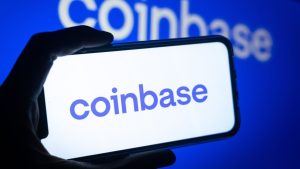Lebanese Economy Forces Residents Toward Crypto – Future of Money?

As Lebanon’s financial woes continue, the Middle Eastern nation increasingly depends on cryptocurrencies, with many locals mining bitcoin (BTC) to survive and using tether (USDT) to buy groceries amid a legacy finance meltdown.
Lebanon’s current financial crisis erupted in 2019, and since then, the intensifying hardships have forced a significant share of the country’s population to seek financial security in crypto. The Lebanese pound, the country’s fist currency, has lost more than 95% of its value since August that year, and the nation’s minimum wage has effectively plummeted from the equivalent of $450 to $17 per month, on top of a triple-digit inflation rate, CNBC reported.
A representative of an emerging class of professionals who switch from earning in fiat to crypto, Georgio Abou Gebrael, a 27-year-old architect from Beit Mery, a village east of the country’s capital Beirut, says 50% of his income is from freelance work, 90% of which he receives in BTC. Using international wire transfers to collect payments from his foreign clients would deprive him of a significant share of his revenue after US dollars would be exchanged into Lebanese pounds by such services, Gebrael said.
“I would lose around half of the value,” he said. “That’s why I was looking at bitcoin – it was a good way to get money from abroad.”
Living in a bankrupt country requires many Lebanese to use crypto to perform normal daily tasks they previously carried out with fiat currency. Some arrange online meetings to swap USDT for U.S. dollars to buy groceries, while others drop their hopes of landing a 9-5 job to engage in crypto mining and related activities.
“Bitcoin has really given us hope,” according to Gebrael. “I was born in my village, I’ve lived here my whole life, and bitcoin has helped me to stay here.”
Despite the failure of its banking sector, in 2020, Lebanon unveiled plans to introduce a digital currency in a bid to restore confidence in the banking sector and transition into a cashless system, according to Riad Salameh, the Governor of Banque du Liban, the country’s central bank. Since then, however, the CBDC project has not been launched.
Indicating a gloomy outlook for the Lebanese economy, an August 2022 analysis by Fitch Solutions stated that Lebanon’s inflation is expected to reach the level of 178% this year, up from 154.8% in 2021, making it the world’s second highest rate after Sudan.















